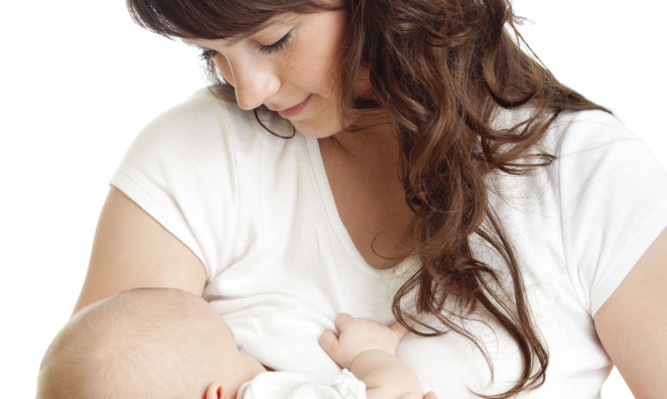The overall breastfeeding rate in Scotland has stayed at a “broadly similar level” over the last decade, according to official data.
In 2014/15, just over 48% of babies were being breastfed at the time of the first child health review visit, which takes place when they are around 10 days old.
That fell to 38% by the time of the six to eight week review, statistics show.
The figures, published by ISD Scotland, looked at breastfeeding levels for babies born in the last financial year.
The report said there is good evidence that breastfeeding in infancy has a protective effect against many childhood illnesses.
Breastfed infants are also likely to have a reduced risk of infection while other probable benefits include improved cognitive and psychological development, and a reduced risk of childhood obesity.
Reporting its key findings, the publication concluded: “Across Scotland, the overall breastfeeding rate has remained at a broadly similar level over the last decade.”
It noted a slight increase in the rate at the first child health review visit due to an increase in mixed feeding where the baby is fed both breast and formula milk.
In other findings, the report highlighted a “clear association” between breastfeeding and deprivation.
Mothers in the least deprived areas were nearly three times as likely to breastfeed exclusively at six to eight weeks compared with mothers in the most deprived areas.
But there has been an increase over the last decade in overall breastfeeding rates in the most deprived areas at the first visit from 26% to nearly 33%, statistics show.
Researchers also found that mothers who did not smoke were around three times more likely to breastfeed than mothers who were smokers.
Breastfeeding rates were also found to vary by geographical area last year.
Exclusive breastfeeding rates ranged from 24.3% in NHS Lanarkshire to 59.4% in NHS Shetland, for example.
Experts concluded a range of possible reasons could be behind the variation, including differences in local practices in maternity hospitals and primary care teams regarding support for breastfeeding.
